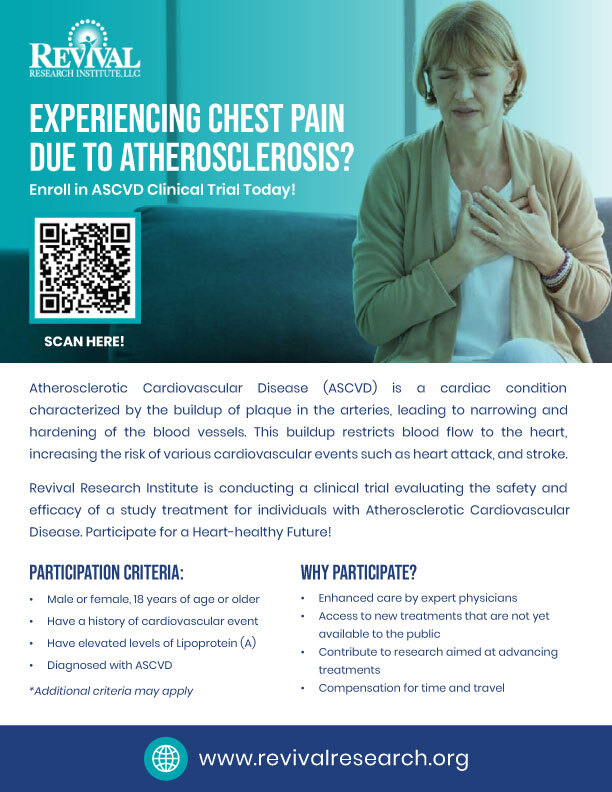You might qualify for the Atherosclerotic Cardiovascular Disease Research Study!
Heart diseases including Atherosclerotic Cardiovascular Diseases are one of the leading causes of death for men and women in the United States. Despite advancements in medicine and treatments, there is still an unmet need for effective treatments that prevent and manage cardiovascular conditions. Lipoprotein(a) is also known as Lp(a). Lp(a) carries cholesterol (a type of fat) in the blood. If you have a high level of Lp(a), you may have a higher risk of heart disease, heart attack, or stroke.
Revival Research Institute is conducting a clinical research study evaluating the safety and effectiveness of an investigational drug in lowering Lp(a) in blood.
You may be eligible for the Clinical Research Study if you:
- Are 55 years or older, and have certain risk factors for heart disease or stroke
- Or are 18 years or older and already have heart disease or have had a stroke
- Have a high level of Lipoprotein(a) in your blood
This Cardiovascular Disease Research Study will have Cardiologists and doctors gain a better understanding of the condition and observe whether the investigational medication helps lower “bad” cholesterol levels in the body that contribute to heart diseases.
*Participation in the Clinical Trial is completely free of cost and is your choice.
**To participate, fill out the form, and someone from our research staff will call you to see if you are eligible for the Clinical Research Study.



